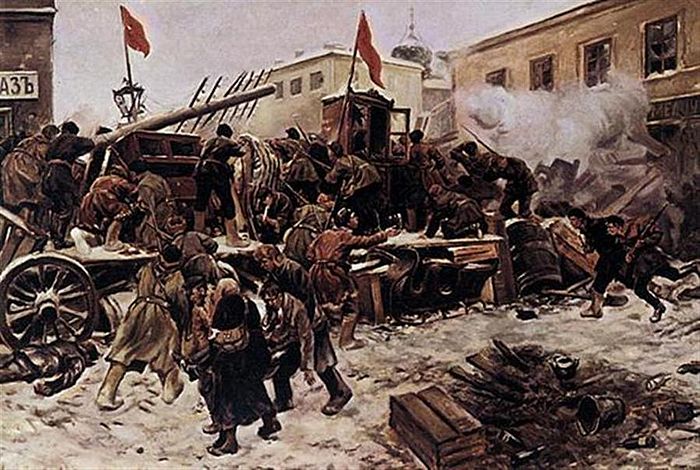The Russian Revolution of 1905-1907, also known as the First Russian Revolution, was a momentous period in Russian history that profoundly impacted the course of the country’s political and social development. The revolution was a response to the grievances and frustrations of the Russian people, who sought to challenge the autocratic rule of Tsar Nicholas II and demand political reforms, workers’ rights, and improved living conditions. This article aims to explore the causes, key events, and consequences of the Russian Revolution of 1905-1907, highlighting its significance as a precursor to the more extensive revolution that took place in 1917.
Causes of the Russian Revolution: Several factors contributed to the outbreak of the Russian Revolution of 1905-1907. One of the primary causes was the deep-seated discontent among the Russian population, arising from oppressive government policies, socio-economic inequality, and the suppression of civil liberties. Additionally, the Russo-Japanese War (1904-1905) had a significant impact on the revolution, as the military defeat in this conflict exposed the weakness of the tsarist regime and sparked widespread disillusionment.
Key Events of the Revolution: The revolution unfolded through a series of key events. The Bloody Sunday massacre on January 22, 1905, when peaceful demonstrators were fired upon by the Imperial Guard in St. Petersburg, marked a turning point and galvanized public opposition to the autocracy. Mass strikes, peasant uprisings, and the formation of revolutionary councils, known as soviets, followed throughout the country. The October Manifesto, issued by Tsar Nicholas II in response to mounting pressure, promised civil liberties, an elected parliament (Duma), and extensive reforms. However, the subsequent dissolution of the first and second Dumas intensified revolutionary fervor, leading to a full-scale uprising in 1907.
Consequences of the Revolution: Despite not immediately toppling the autocratic regime, the Russian Revolution of 1905-1907 had far-reaching consequences. The revolution marked the emergence of a politically conscious working class and laid the groundwork for future revolutionary movements. It exposed the vulnerabilities of the tsarist autocracy and weakened its authority, prompting the government to implement limited reforms to maintain stability. Furthermore, the revolution highlighted the growing influence of revolutionary intellectuals and set the stage for the revolutionary events that would unfold in 1917.
Legacy and Significance: The Russian Revolution of 1905-1907 holds immense significance in the history of Russia and the broader world. It demonstrated the power of mass mobilization and popular discontent in challenging oppressive regimes. The revolution inspired various political ideologies and factions, including the Bolsheviks, who would later play a pivotal role in the 1917 revolution. The events of 1905-1907 also exposed the deep-rooted social and economic problems within Russian society, highlighting the urgent need for transformative reforms.
Conclusion: The Russian Revolution of 1905-1907 was a watershed moment in Russian history, laying the groundwork for future revolutionary upheavals. It demonstrated the strength of popular resistance against autocracy and paved the way for the eventual overthrow of the tsarist regime in 1917. While the revolution did not achieve all its immediate objectives, it sparked a wave of political consciousness and set in motion a chain of events that would reshape Russia’s destiny. The impact of the Russian Revolution of 1905-1907 reverberates to this day, serving as a reminder of the power of the people to challenge oppressive systems and fight for a more just and equitable society



















Add Comment